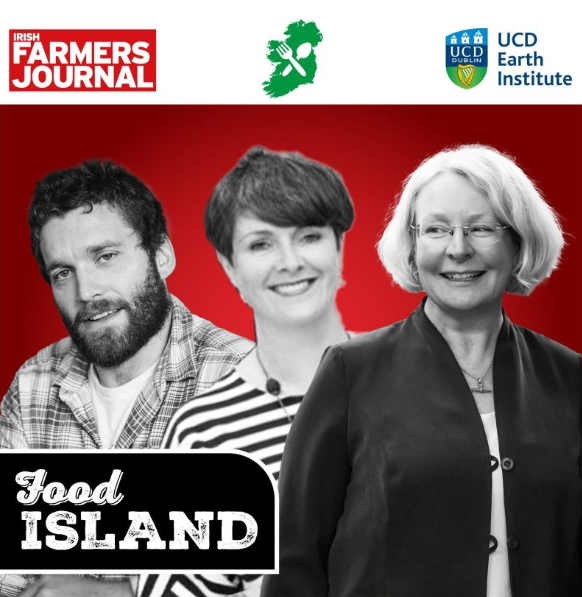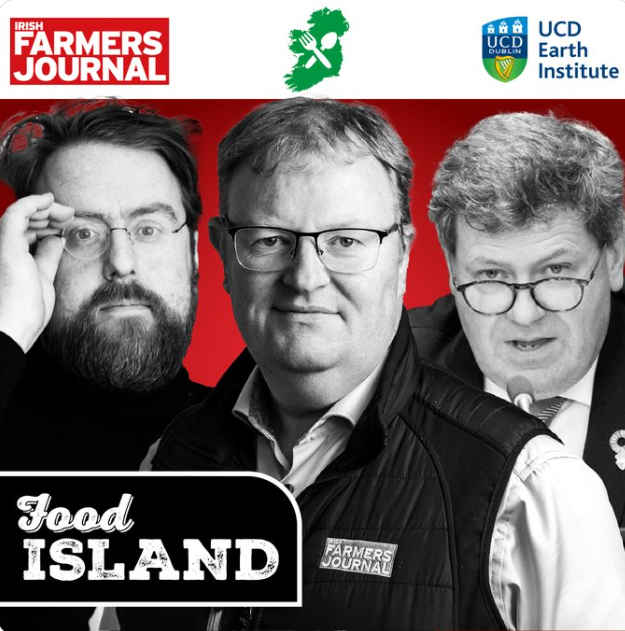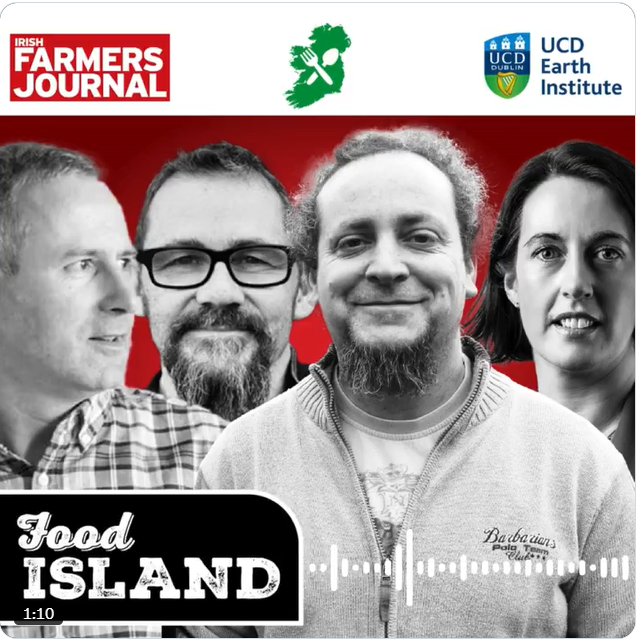Food for thought: Catch up on our podcast collaboration with the Irish Farmers Journal
Tuesday, 5 August, 2025
Share
.png)
Interested in food culture? Hungry to learn more?
A recent podcast collaboration between the Irish Farmers Journal and the Earth Institute might just sate your appetite.
The six-part series explores the past, present and future of Irish food and agriculture to determine if past diets and farming practices could be key to more sustainable food production in the coming years.
Hosted by Janine Kennedy, a 2024 Earth Institute journalist in residence, (opens in a new window)Food Island features experts from the world of agriculture, food, journalism and academia – including several members of the Earth Institute.
(opens in a new window)Episode 1 focuses on the understanding of prehistoric diets and farming practices, with UCD School of Archaeology Associate Professor Meriel McClatchie discussing her work in archaeobotany - the study of plant remains from archaeological sites.

"We have really good records from historical sources that people were growing different kinds of crops in Ireland – even to the extent that they were being exported,” says Assoc Prof McClatchie, who is also deputy director of the Earth Institute. “These [crops] are being grown at scale, it’s not just subsistence farming, this is serious industry level.
“How did it change over time? What worked and what didn’t? And what crops might be nutritious and resilient and might provide an alternative to the crops we’re growing nowadays?”
The first episode features another academic from UCD School of Archaeology. Assoc Prof Jessica Smyth, who is also a member of the Earth Institute, is particularly interested in dairy farming, which she explains, was happening a lot earlier than originally thought.
“Dairying is as early as the other forms of agriculture,” says Assoc Prof Smyth, who has extracted and radiocarbon dated dairy lipids from pottery from the Céide Fields. The neolithic site in Co. Mayo contains the oldest known stone-walled fields in the world – dating back nearly 6,000 years.
The lipids extracted at the site date back to the early 4th millennium BC.
Of the farmers, she adds: “They weren’t just scratching out a living. These are very sophisticated, almost cooperative systems of farming.”
Vice President of Education and Director of the SDG Academy, UCD professor of politics and Earth Institute member Patrick Paul Walsh spoke to Janine Kennedy on the podcast’s (opens in a new window)fifth episode, where they explored among other topics, food security and Ireland’s overreliance on food imports.

“We could be shut down in three days… and our capacity to grow and understand food is gone down a lot,” says Professor Walsh, who also points out the disadvantages of buying everything under one roof.
“This convenience and one-stop shopping has led to a narrowing of the product range, a narrowing of nutritional content… and food insecurity. If there’s any global issue or any war, we’re not in any way self-sufficient.”
The (opens in a new window)sixth and final episode of the series looks at the future of Ireland’s food and farming landscape, and features bioeconomy expert and Earth Institute member, Tom Curran.
On how Irish farms could look in the future, the Associate Professor at UCD School of Biosystems and Food Engineering anticipates that the southern and eastern parts of Ireland will be home to bigger farms, but that there will still be space for smaller farms in other parts of the country.

“I think some people will focus on food production and others might be more on the sustainability side… but I think the likelihood in the future is more intensive farms, which are going to be more viable, in certain parts of the country, and there’ll be a move towards more nature-based sustainability, ecotourism [in other places],” says Assoc Prof Curran.
Striking a balance between protecting the environment and livelihoods is important, he adds, but safeguarding Ireland’s heritage is also vital: “What do we want to use the land for? Do we want to use it to protect the environment? And are there other places where we can intensively farm for food production? I think you have to try to find a balance.”